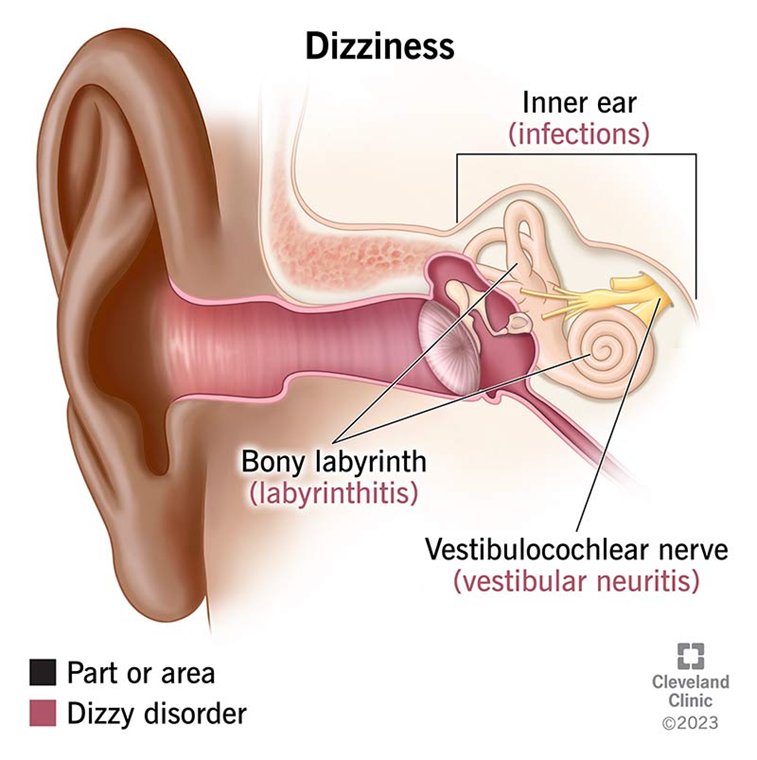A nurse is caring for a client who has been taking quetiapine for 1 week and reports dizziness. The client asks the nurse if the dizziness indicates an allergic reaction to the medication. Which of the following responses should the nurse make?
"Take your medication with a meal to decrease the onset of dizziness."
"Dizziness typically indicates an allergic response, so the medication should be stopped immediately."
"Take your medication first thing in the morning, and it will not cause as much dizziness."
"Dizziness is a common adverse effect of the medication and is related to low blood pressure."
The Correct Answer is D
Choice A reason:
Taking quetiapine with a meal can help reduce gastrointestinal side effects, but it does not specifically address dizziness. Dizziness is more commonly related to the medication's effect on blood pressure rather than its interaction with food.
Choice B reason:
Dizziness is not typically an indicator of an allergic reaction to quetiapine. Allergic reactions usually present with symptoms such as rash, itching, swelling, severe dizziness, and trouble breathing. Therefore, stopping the medication immediately due to dizziness alone is not warranted.
Choice C reason:
Taking quetiapine in the morning might not necessarily reduce dizziness. The timing of medication administration is usually based on the specific instructions from the healthcare provider and the patient's overall treatment plan. Dizziness is more related to the medication's pharmacological effects rather than the time of day it is taken.
Choice D reason:
Dizziness is a common adverse effect of quetiapine and is often related to orthostatic hypotension (a drop in blood pressure when standing up). This side effect is well-documented and usually occurs when starting the medication or increasing the dose. It is important for the nurse to reassure the client and provide strategies to manage this side effect, such as getting up slowly from a sitting or lying position.

Nursing Test Bank
Naxlex Comprehensive Predictor Exams
Related Questions
Correct Answer is D
Explanation
Choice A reason:
Writing a detailed daily activity schedule is not typically associated with acute mania. In fact, individuals experiencing mania often have difficulty maintaining structured routines due to their heightened energy levels and racing thoughts.
Choice B reason:
Refusing to engage in conversation is more indicative of depressive episodes rather than manic episodes. During mania, individuals are usually more talkative and may have pressured speech.
Choice C reason:
Isolating oneself from others is another behavior more commonly associated with depression. In contrast, those experiencing mania often seek out social interactions and may be overly sociable.
Choice D reason:
Reporting a lack of sleep is a hallmark symptom of acute mania. Individuals in a manic state often feel little need for sleep and may go for days with minimal rest without feeling tired. This lack of sleep can exacerbate other manic symptoms, such as irritability, impulsivity, and grandiosity.
Correct Answer is C
Explanation
Choice A reason:
While it is important for a social worker to be aware of a client's difficulty with remembering prescribed food restrictions, this information is more relevant to the dietary staff or a nutritionist who can assist with meal planning and education. However, if the memory issues are severe and impact the client's ability to live independently, then it would also be pertinent for the social worker.
Choice B reason:
Frustration with finding an activity to relieve restless energy may be relevant to a social worker if it pertains to the client's overall mental health and well-being. The social worker can collaborate with the healthcare team to find suitable activities or therapies that can help the client manage their energy levels.
Choice C reason:
The inability of the client to return home after discharge is critical information for a social worker. This directly impacts the client's need for support services, such as long-term care planning, home health services, or alternative living arrangements. The social worker plays a key role in coordinating these services and ensuring a smooth transition from the hospital to the next phase of care.
Choice D reason:
A request to talk to someone about changes in spiritual beliefs is also relevant to the social worker, as they can provide or arrange for spiritual support services. However, this is not as urgent as the need for housing or care planning, which has immediate practical implications for the client's discharge planning.
Whether you are a student looking to ace your exams or a practicing nurse seeking to enhance your expertise , our nursing education contents will empower you with the confidence and competence to make a difference in the lives of patients and become a respected leader in the healthcare field.
Visit Naxlex, invest in your future and unlock endless possibilities with our unparalleled nursing education contents today
Report Wrong Answer on the Current Question
Do you disagree with the answer? If yes, what is your expected answer? Explain.
Kindly be descriptive with the issue you are facing.
